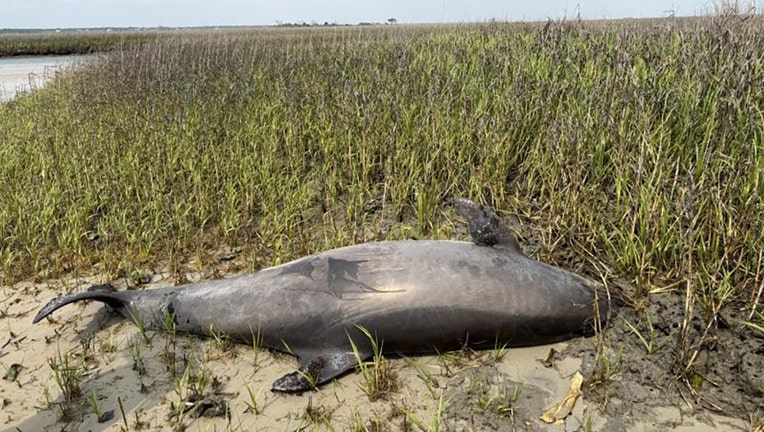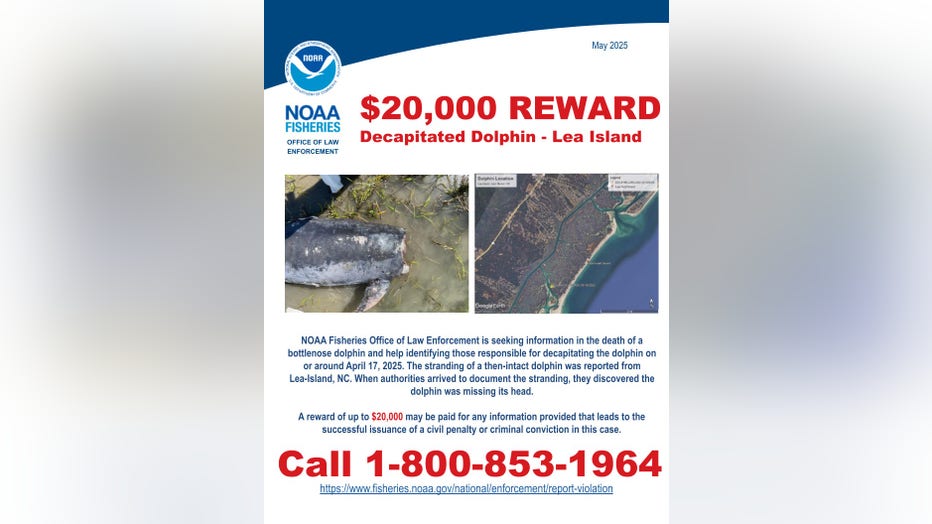Decapitated dolphin found in North Carolina; $20K reward offered

Dolphin found decapitated on North Carolina island (NOAA)
Enforcement agents for the National Oceanic and Atmospheric Administration are offering a $20,000 reward for information on the mutilation and decapitation of a dolphin found dead on a North Carolina island.
What we know:
A person spotted a stranded, dead bottlenose dolphin on Lea Island on April 15. According to NOAA, the island is remote and only accessible by boat. When investigators arrived, they found the 8-foot dolphin had been "intentionally mutilated and its head removed."

Authorities determined that the head was removed between April 16 and April 18, after they got the initial report of the stranded dolphin. The intentional decapitation is a violation of the Marine Mammal Protection Act, NOAA says. Harassing, harming, killing or feeding wild dolphins is also prohibited under the Marine Mammal Protection Act, as is collecting protected species parts.
RELATED: Baby seal stabbed on Oregon coast; search for suspect underway
The University of North Carolina at Wilmington assessed the dolphin and determined it likely had Brucella, a bacteria that causes brucellosis and is transferred to humans through direct contact.
Reward offered
What they're saying:
"The remote location where the dolphin was found adds to the difficulty of investigating this incident and cause of death," NOAA said in a bulletin. "We are calling on your help to find those responsible."
Authorities are looking for the names of the person or people responsible that leads to an arrest, conviction or civil penalty. Violations can be civil or criminal charges and can be punished with up to $100,000 in fines and up to one year in jail per violation.
What you can do:
Anyone with information is asked to call the NOAA Enforcement Hotline at (800) 853-1964. You can leave tips anonymously, but to be eligible for the reward you must include your name and contact information.
The Source: This report includes information from the National Oceanic and Atmospheric Administration.

